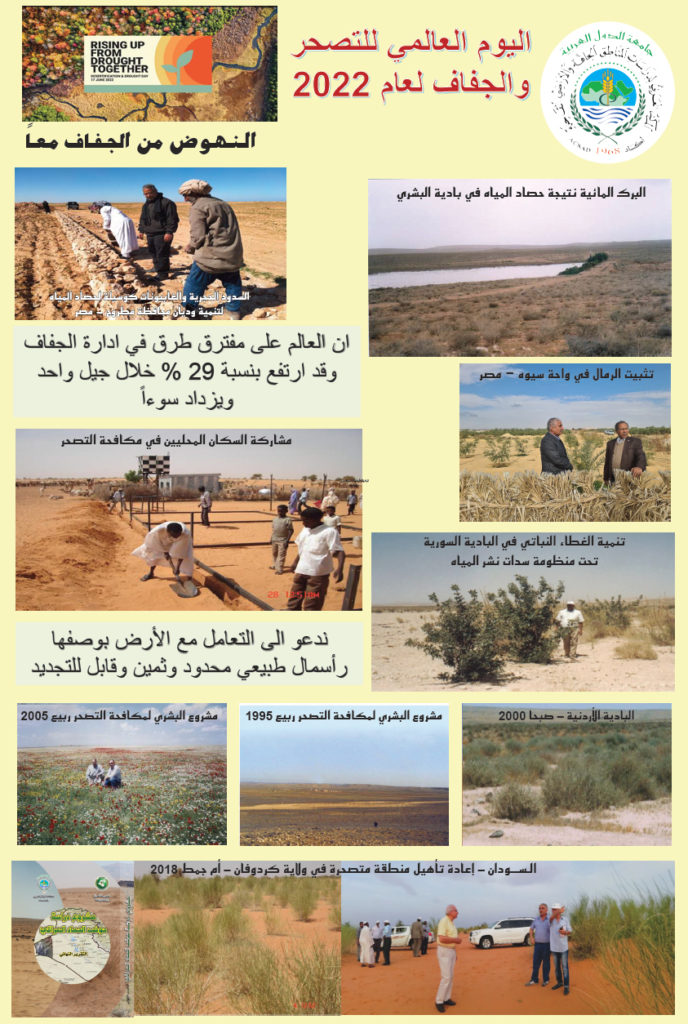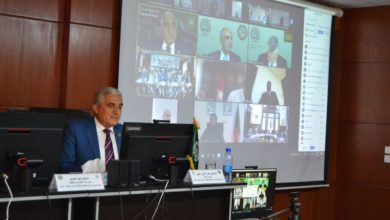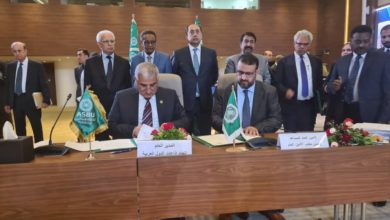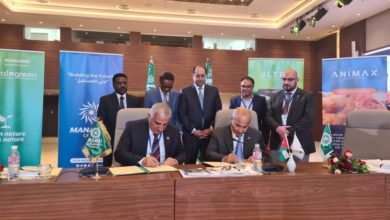The word of the Arab Centre ACSAD’s General Director on the World Day of Desertification and Drought
In the name of the merciful and compassionate Allah…. Prayers and peace on the Master of the messengers
It is my pleasure that the ACSAD organization participates today in the World Day of Desertification on 17th June of each year to shed light on one of the most critical dangers spread widely in the Arid and semi-arid lands of the world, in particular, our Arab World, recognizing the seriousness of the climate change represented by drought and high degrees of temperature in our planet, especially that the World Day of Desertification and Drought’s events compatible with work progression of the international convention of controlling desertification and contributing to achieving the sustainable development 17th goal to enhance and activate the means of global partnership for the sustainable development and limit the drought and desertification by cooperation together, which took the considerable interest in 15th meeting of the convention parties, the United Nations determination to restore the ecological system as desertification has many environmental and economic consequences that threat food security, which likely they will become more intensive and frequent under the climate change.
Accordingly, the global communities represented by the General Secretariat of the international convention on controlling desertification appeal for enhancing the international efforts aiming to limit desertification and alleviate the drought impacts by preparing the national and regional strategies and policies, readiness for the early warning, risk evaluation, and damages inventory. Our celebration today is a response as an Arab and regional organization to the international requirements and support to the concerned national institutions in the Arab countries.
Here I indicate some significant facts about desertification as it is a global issue that has crucial impacts on human life and their economy, where desertification threats livelihood for more than a billion people who live in a hundred countries per world, whereas, in the Arab world the arid lands occupy about 70% per the total space and 20% of the agriculture lands are threatened by desertification. The world loses annually 10 million hectares, while the Arab world loses 60000 – 80000 hectares. The UN’s reports indicate that to meet the capita need for food and clothing requires 3 hectares per capita; due to the environmental crisis the world is going through and threats the global food security according to the mounting desertification and population growth of more than seven billion capita, where per capita decline; whereas, per Arab capita reduced for less than 1.5 hectares. The population was more than 300 million per capita, which caused a nutritional gap approximating 44 billion dollars. The secretariat of the desertification convention calls on the international community to deal with lands as a natural limited and precious capital that should be prioritized to preserve it as an essential resource to provide food and clothing for millions of people so that the desertification day is entitled this year “Rising up from Drought together.”
According to the climate change scenario, half the world’s population will live in areas suffering dramatically from water scarcity in 2030. Starting from the risky situation of the Arab food security hence and forth, “if we do not take the serious procedures to stop desertification, neutralize land degradation, and alleviate drought”, therefore, the ACSAD organization, since its establishment in the early 1970s, works to develop the natural resources and improve the livelihood in the arid and semi-arid in the Arab world. The issues of desertification, land degradation, drought, and dust and sand storms have had a prominent role in ACSAD’s activities. And may I present to you some of these activities implemented by ACSAD in desertification and limitation of drought, e.g., in the Syrian Arab Republic, controlling desertification for million hectares in the Al-bishry region, restoring 5000 hectares in the same area, sand control and developing the Syrian pasture for 2000 hectares in Haribsha and Kabajeb in Al-Badia, surveying the natural resources for 3.5 million hectares of the Syrian Badia. Moreover, the following are some examples from the Arab countries We provide: the annual observation of the climate change in the plant cover by using Remote sensing system technologies for the whole Arab world’s lands, combatting desertification of 2000 hectares in the regions of (Sabha, Al-Soura) in the Jordanian Badia, as well as 6000 hectares in Egypt distributed to Siwa oasis, Matruh, and Sinai, 4000 hectares in Algerian steppe, in addition to 2000 hectares in Al-Ammaria in Saudi Arabia. Generally, all desertification observation and controlling projects carried out by ACSAD take into account the problem of land degradation and mitigating climate change, which have positive results,

some of the most important of which:
Protecting soil and the decline of wind erosion, reduced soil quantity missed because of the erosion, and dune fixation and control.
A remarkable positive evolution in the deterioration of natural pasture manifested in the pastoral productivity and plant variation, as well as the reappearance of plant varieties, threatened with extinction
Limit the sand and dust storms blown from the hot areas, which had an ecological, economic, and healthy impact on the local inhabitants, livestock, public utilities, and pastoral agricultural lands.
Return the wildlife and biodiversity to the regions submitted to development through the wild bird’s return and the diffuse of small animals’ dens
Today ACSAD’s celebration of “Desertification World Day” is a continuation of our organization’s activities to diffuse awareness of the causes, risks, and control technologies, build capacities of the participated technicians and workers in desertification control and combat, which form the biggest holder for the sand and dust storms issues in the Arab countries, which is a completion of hard and outstanding work exerted by ACSAD to preserve the natural resources through its various and accumulative experiences, some of which: the sustainable management of lands, water use rationalization, eliciting new crop-varieties tolerant to drought, fruitful trees resilient to environmental stresses, in addition to restoring degraded lands and alleviating the adverse impacts of drought and climate change. The Arab Centre has implemented several pilot projects to control desertification and restore degraded lands, follow up the implementation of the UN’s convention of controlling desertification as well as neutralize land deterioration, which is considered one of the purposes of the SDG’s 15th goal to preserve land resources in a manner that corresponds to the national sustainable development priorities in the Arab countries.
While in the building of Arab capacities, the Arab Centre, as an Arab house of experience through its long-term scientific career, implemented many workshops and specialized training courses in the applied scientific areas of land sciences, which many experts and technicians from the world Arab participated in, where they had been trained on most modern related software in controlling desertification, evaluating land degradation, and how to measure them in the field. Recently ACSAD is adopting a scientific approach to observe the dust storms and limit them in the integration with remote sensing technologies as well as the traditional means.
In conclusion, I renew our commitment to the problems and issues of arid zones and dry lands, working to limit them. And I am honored to put all of ACSAD’s potential into the success of joint Arab work in desertification and alleviating the drought impacts.
Peace be upon you; God bless you.
Dr Naser Edin Obeid
General-Director



